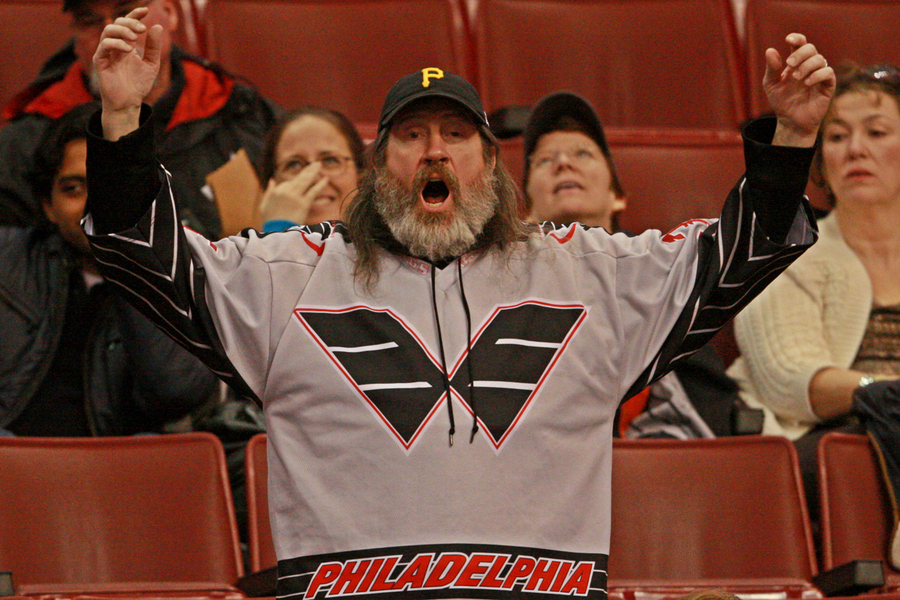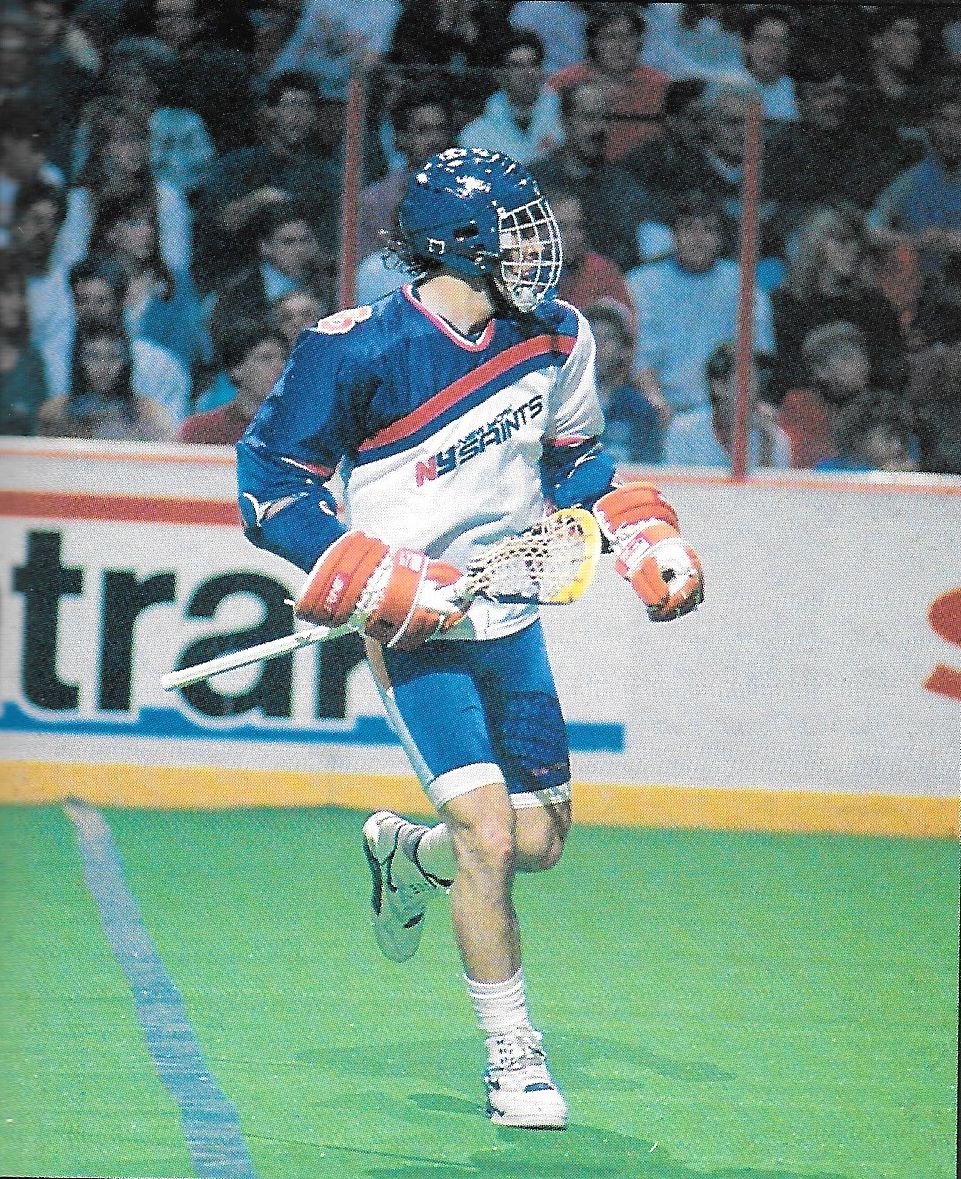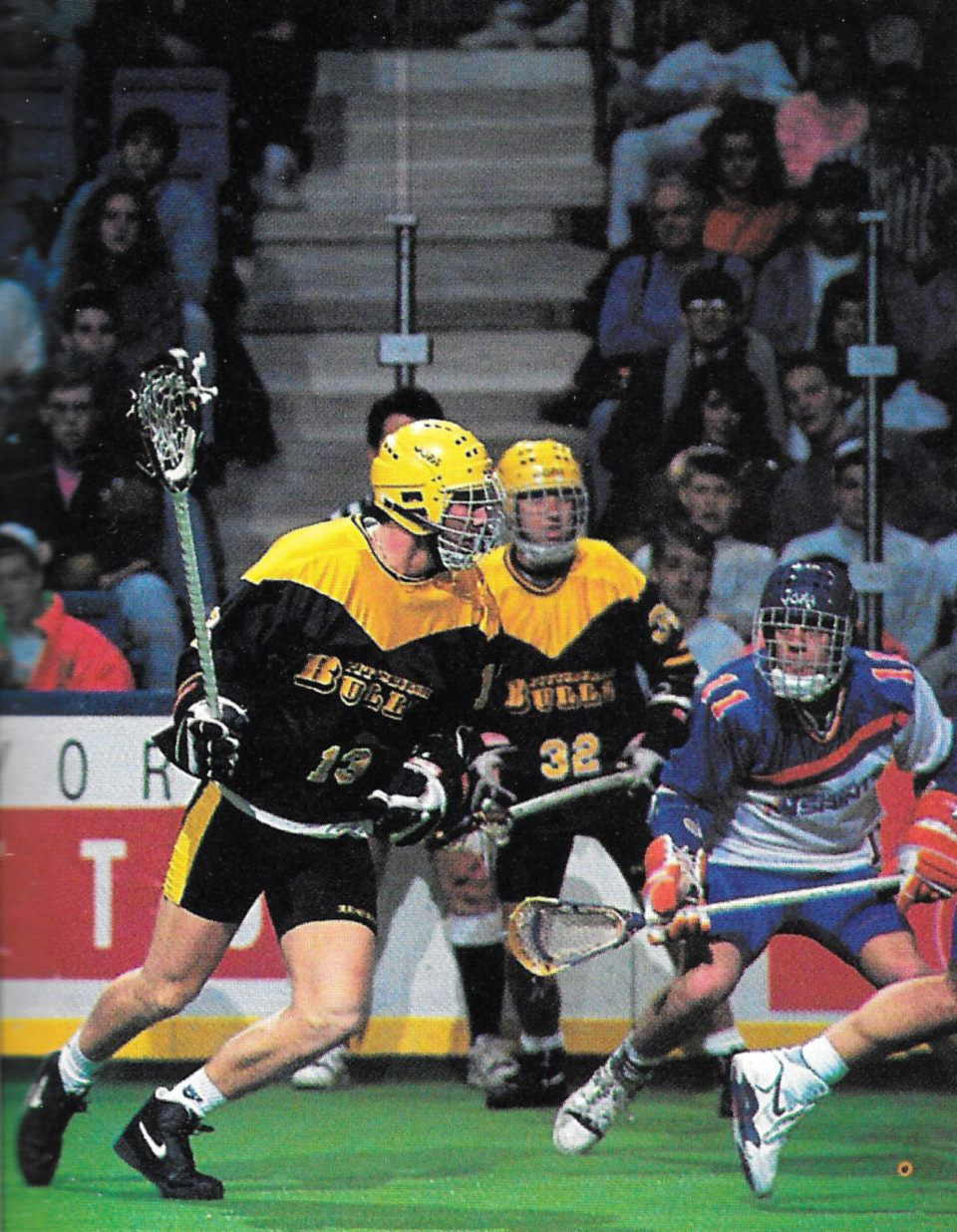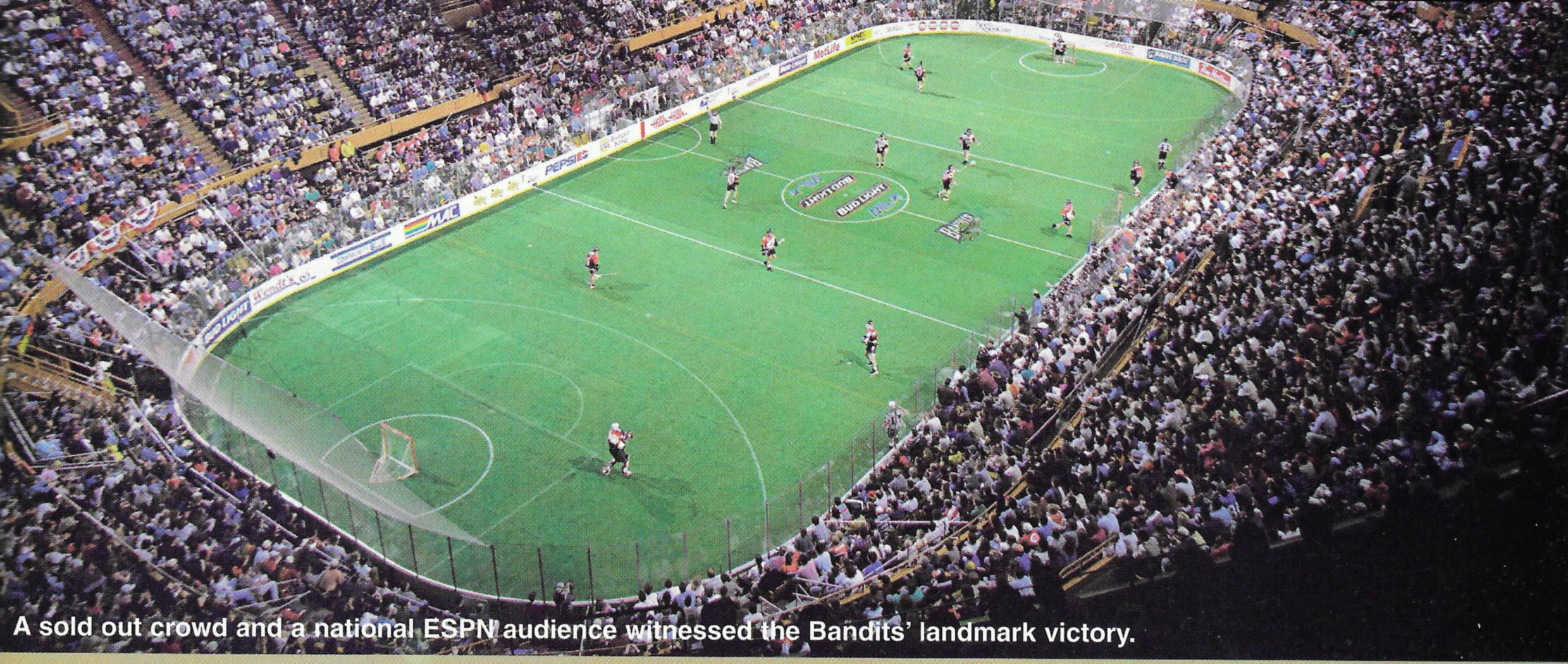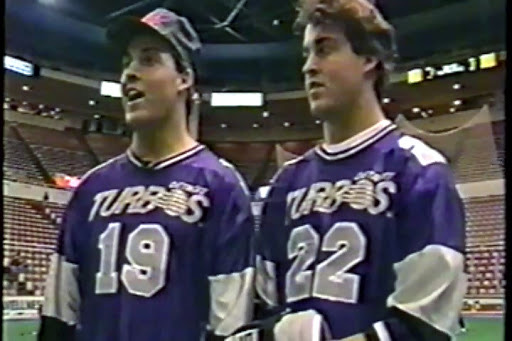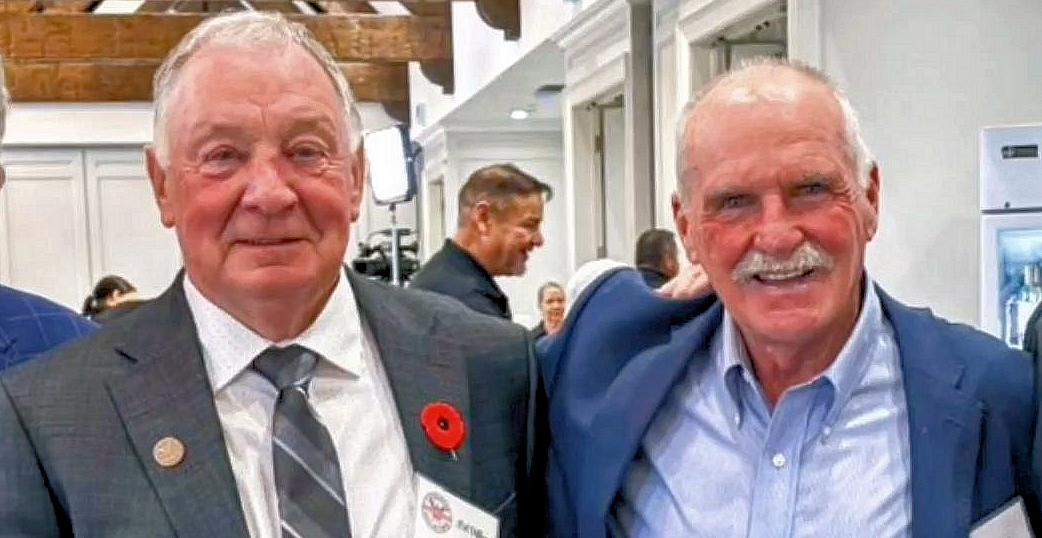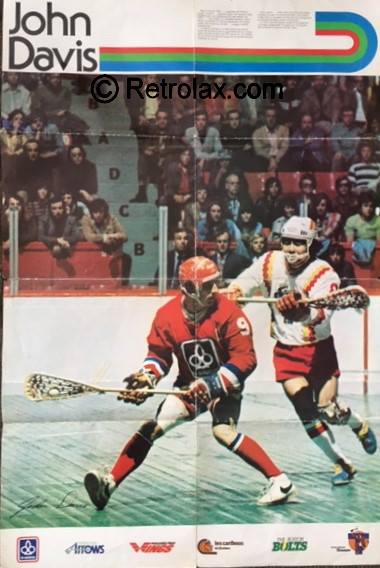by Marcus Hayes, Daily News Sports Writer
Philadelphia Wings forward Gary Gait knew these things before the 1995 Major Indoor Lacrosse League season began.
He knew there would be pressure for his team to repeat as league champions, as Buffalo did in 1992 and ’93. He knew there would be pressure for him to lead the Wings there, especially since his twin, Paul, left the Wings this year to play for the expansion Rochester Knighthawks. After all, Gary Gait is recognized as one of the better lacrosse players in the history of the game, but Gait knew that reputation and past laurels only go so far. So, he hired a personal trainer.
In addition to having the weight of repeating on his shoulders at Saturday’s title game, Gary Gait’s burden was made heavier by the fact that it was Paul’s Knighthawks that Philadelphia played host to at the CoreStates Spectrum. Firmly implanted in Gary’s craw: Paul’s Canadian Box Lacrosse team beat Gary’s last summer. But Gary, in the best shape of his five-year career, was ready for all of this.
While many of the other players lagged and gasped and felt the burn of 60 minutes of regulation lacrosse as the game went into overtime, Gary did not. He broke free, received a pass from Tom Marechek and snapped in a rocket of a 25-foot shot over the shoulder of Knighthawks goalie Steve Dietrich with 51 seconds gone in the five-minute, sudden-death extra period. Then he stood, hands raised, as many of the 14,824 boisterous fans reveled in his glory and the 15-14 win, the Wings’ ninth in 10 games this season.
It was Gary Gait’s sixth goal. The performance, which included an assist, earned him the game’s Most Valuable Player honors. His performance over the eight-game regular season – 30 goals and 18 assists, best since his 32-36 rookie season – won him the league MVP award.
The stage could not have been more perfectly set. Rochester (6-4) won the first and only faceoff of the overtime. As per the MILL shot clock, the Hawks had 30 seconds to shoot. The plan: Free Paul, let him decide. He led the Hawks with 23 goals and 13 assists this season, and had five goals and three assists Saturday.
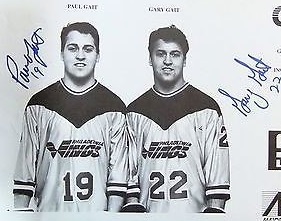
But Paul could not get free. The shot clock expired. The Hawks turned the ball over, and Gary finished them.
“They were holding, clutching, grabbing me,” Paul said, acknowledging the acceptance of such defensive strategies. “It’s very hard to get open when they do that.
“I tried to get my teammates to do that with Gary.”
They tried. But Gary spent the months between November and April following the orders of Rob Marra, a former Johns Hopkins football player turned personal trainer. A mutual friend, Barry Kagan, recommended the 27-year-old Marra to the 27-year-old Gait.
Marra taught Gait the virtues of high-repetition weight training. He designed interval running programs, using short- and long-distance sprints to complement Gary’s long-distance regimen.
So, when the season started, Gary’s short-term endurance was greater and his strength increased. At 6-2, 210-pounds, his strength and size were always assets, especially when he and Paul led Syracuse University to three consecutive NCAA titles beginning in 1988.
The gains meant much pain.
“Oh, it was hard,” Gary said. “Early mornings, late at night after work. But I knew that, even at my age, I had the potential to get better.”
It worked.
“You could see it,” said Marechek, who won two collegiate titles with the Gaits at Syracuse. “He was quicker, faster, stronger. Intensitywise, he was a step quicker than everybody.”
Which is why, while Paul and the rest lagged in the third period, Gary cruised around a Steve Govett pick, lost his defender and had enough time to aim high, which, as the MILL world knows, is Dietrich’s weakness.
“I anticipated him shooting to that corner,” Dietrich said. “Maybe that shows why he’s so good. I knew where he was going to shoot it, and he still beat me.”
It seemed to matter little where Gary, or Paul, for that matter, aimed Saturday. Paul scored Rochester’s first three goals and helped the ‘Hawks forge an 8-4 halftime lead. Wings goalie Dallas Eliuk, a first-team All-Pro for the past four years, was getting shelled, with little defensive help and less luck.
Twice he stopped shots, only to have them squirt over him and into the goal. Eliuk had a more fortunate second half, and stopped 30 shots in the game. Dietrich stopped 34.
Things were a bit easier early for Dietrich. With Rochester limiting the Wings to outside shots, Gary Gait had just one goal in the first half.
Better defense brought the reward of an eight-goal third quarter by the Wings. Gary had four of them. Philadelphia led, 12-10, entering the fourth period.
The Wings continued to push, taking a 14-11 lead on Chris Flynn’s goal. But Paul Gait responded with a goal, set up Matt Riter for another and looked on as Riter set up Rex Lyons for the tying goal with 24 seconds left in regulation.
All of that, of course, simply served to set the stage for Gary Gait’s affirmation of his peerlessness. As he stood there with his arms raised, having ended the game as he must have endlessly imagined it, thoughts of pure joy flooded his mind. The hours of training with Marra, the season of great expectations, the months of one-upsmanship from his brother, culminated with one wicked flick.
“It was unbelievable,” he said. “To end it right there. To beat my brother. To even up the score.”
As for Paul, he expected little else.
“Gary worked hard for this,” he said. “He had the best season of his career since his rookie year.”
Yes, but Paul, come on: Didn’t it needle you a bit that it was Gary who won it?
“Better him,” said Paul, chuckling, “than someone else on the Wings team.”
(Philadelphia Daily News, April 10, 1995)

